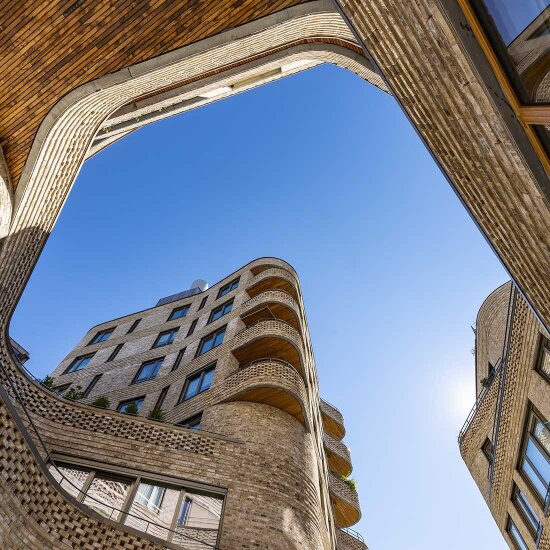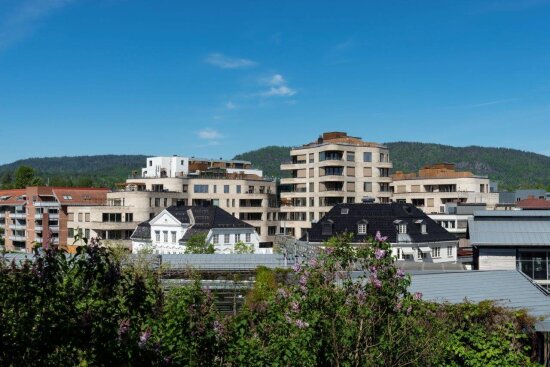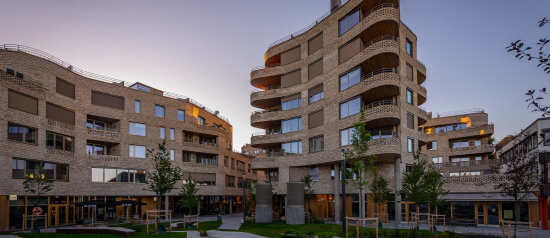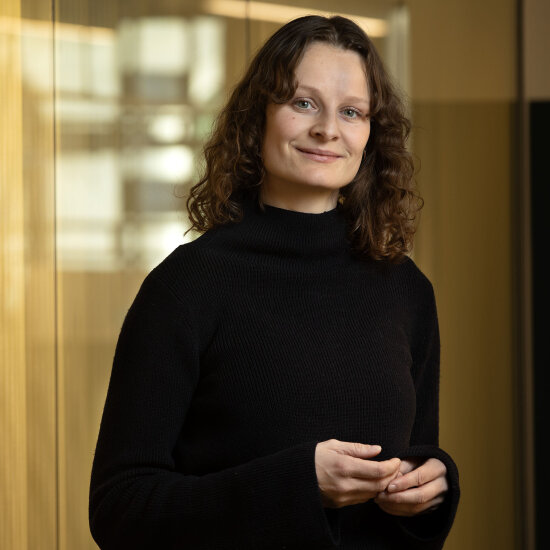People in Asker have a strong wish to develop their town centre so that it provides attractive dwellings, shops, cafes and restaurants without negatively impacting the existing cluster of wooden houses.
In 2015, at the beginning of the planning stage for the Wesselkvartalet area, architects Vigsnæs+Kosberg++ drew up a draft project proposal. A basic premise was to retain the area’s existing walking routes, and to provide pedestrian access to the railway station. The principal objective was to combine the wish for densification with high-quality materials and craftmanship.


How high?
In order to provide sufficient light and open space, the developers wanted to create a small park and to introduce height differences between buildings. Because the Area Plan specified a more compact approach, a discussion with the local authorities ensued about heights, volume and space utilisation.
After a long and constructive process, the building works were ready to start in 2018. Four years later, Asker now has an urban area that takes account of local daylight conditions with buildings that are gradually lower the nearer they get to the traditional wooden houses in the neighbourhood.

Inspired by old brick façades
The architects drew inspiration from old brick façades in Asker and chose brick relief work for the external walls. This provides texture, and gives an informal impression, as well as a sense of stability and permanence.
By differentiating between the buildings, introducing height differences and rounded shapes, the architects have produced a diverse range of flats with different floor plans and attractive business premises at street level.
Wesselkvartalet: New development in the centre of Asker
By: Wesselkvartalet AS, Vigsnæs+Kosberg++ Arkitekter AS, Gullik Gulliksen AS
Design disciplines: Architecture, Town and place planning, Urban space development
Recipient of the DOGA Award
This project has received the DOGA Award for Design and Architecture for its outstanding qualities and for showing how strategic use of design and architecture creates important social, environmental and economic value.
These are three reasons why this is an exemplary project:
- Attractive place development
In order to ease the pressure on Oslo’s housing market, it is essential that residential areas are established outside the borders of Oslo. The Wesselkvartalet area in Asker is one such development. The centre of Asker has been enriched with several residential properties, shops, restaurants and jobs, as well as a lovely green park and high-quality urban spaces.
- Built to suit a car-free existence
The Wesselkvartalet area provides a high density of dwellings in the immediate vicinity of good public transport facilities. This, combined with good amenities for pedestrians, helps to reduce the level of car use.
- Innovative energy solution
Included in the project is an innovative energy hub which supplies the Wesselkvartalet area with power. The hub is also hooked up to several neighbouring properties as well as the street heat network in the centre of Asker.


